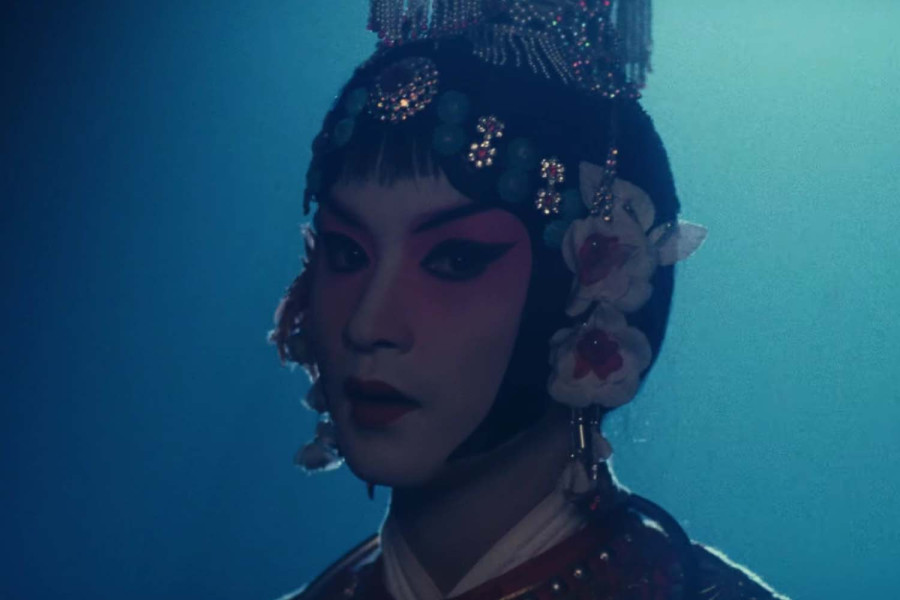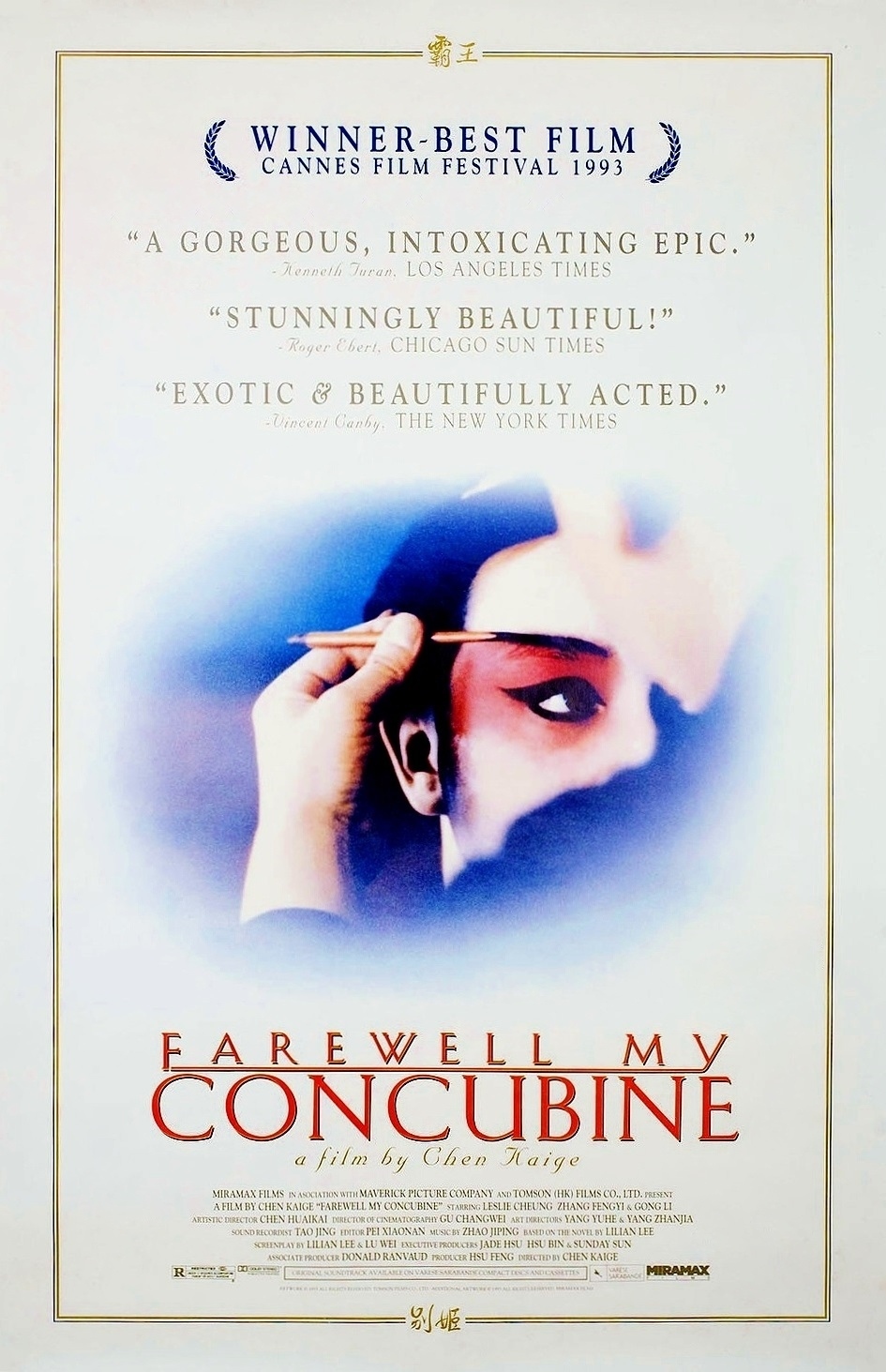Movies
Triumph and tragedy
Chen Kaige’s ‘Farewell My Concubine’ explores love, identity, and political upheaval within the realm of Peking opera.
Pradikshya Dhakal
As one of the most influential movie industries, Hong Kong cinema has produced numerous cult classics, including ‘Kung Fu Hustle’, ‘In the Mood for Love’, ‘Chungking Express’, and many more. Drawn to this rich cinematic world, I embarked on a journey to delve deeper into its nuances. Along the way, I discovered ‘Farewell My Concubine’, a film that has endured its share of misfortunes yet remains celebrated for its numerous accolades.
Set in the early 1900s, the movie begins with a flashback that introduces Douzi (played by Leslie Cheung) and Shitou (Fengyi Zhang), two boys who meet in an opera house where they undergo rigorous and often brutal training. Alongside countless other boys enduring harsh beatings in pursuit of their dreams, Douzi and Shitou form a deep bond of trust and companionship. They stand by each other through the punishments and become their only true friends.
This bond propels them to become renowned opera artists of their era. Due to his feminine features, Douzi plays the concubine and Shitou the king in their signature performance of ‘Farewell, My Concubine’. Adopting their stage names, Cheng Dieyi and Duan Xiaolou, they fully embrace their new identities as opera actors. Their performances captivate audiences across China, attracting the attention of wealthy and influential figures who pay to see them perform Farewell, My Concubine.
Over the years, Cheng develops romantic feelings for Duan, revealing his homosexuality. However, Duan only feels a brotherly affection for Cheng, viewing him solely as a friend and stage partner. Their relationship as friends and opera actors is strained when Duan marries Juxian (played by Gong Li), a former prostitute.
Cheng sees Duan's marriage as a betrayal, reminding him of the oath they took in front of their master to remain a performing duo for life. Duan's union with Juxian deeply wounds Cheng, shattering the reality he has clung to—the world of Peking opera and the characters they embody. Unaware of the depth of Cheng's feelings, Duan is taken aback by Cheng's obsession with the opera, missing the subtle confession hidden within it. This moment underscores how the line between their stage roles and real lives has begun to blur. Their identities have become so intertwined with the concubine and the king that they can no longer separate themselves from their characters.
During this time, the Japanese invasion of China and the Chinese Revolution also weave into the plot, drastically impacting Cheng and Duan's lives. Modern art forms emerge, challenging the traditional ones, and new ideologies take root, pushing aside the old ways. Peking opera, once revered, comes under criticism for failing to represent the modern era, where labourers, not kings, queens, or warriors, are the central social forces. ‘Farewell My Concubine’ loses its former glory, fame, respect, and love that Dieyi and Duan once enjoyed.
The film starts off promising, with each character carrying depth and purpose. The storytelling draws you in, making you want to accompany them on their journey, to be swept along by the hauntingly raw scenes and emotions. The atmosphere perfectly captures a bygone era of China—unfamiliar and slowly fading from memory. However, as the film progresses, I found the ending underwhelming.
The characters gradually become one-dimensional, overshadowed by the film's focus on politics and ideologies, particularly the Cultural Revolution happening in the background. Their personal struggles are eclipsed by external events, leaving my expectations unmet. The direction the story took diverged from what I anticipated, but not in a way that left me surprised or satisfied.
But perhaps that's the beauty of this film. Despite my slight disappointment with the plot, the performances, setting, and cinematography were compelling enough to keep me captivated. They held me in my seat, convincing me to stay until the end.

One of the reasons I watched this movie was Leslie Cheung. Having admired his work in ‘Happy Together’, I embarked on this journey with high expectations and excitement. In the end, my expectations were more than fulfilled. His performance captivates you, drawing you completely into his character. As Cheng Dieyi, he embodies grace, fragility, and innocence. Cheung has the remarkable ability to transform into his role like a chameleon, making his portrayal both powerful and unforgettable.
The scenes in the movie possess multiple layers, with a single moment evoking both discomfort and sympathy, all while captivating you with its beauty. The close-ups in painful and distressing scenes never feel excessive; each one is vital to advancing the storyline. Every scene contributes to the next, much like the intricate parts of a clock, each essential in making time move forward.
The film’s queer representation and depiction of significant events in China’s political history led to it being banned in several countries and regions. It underwent numerous cuts and re-edits before it could be freely released. Despite these challenges, the film earned prestigious accolades, including the Palme d’Or and the Golden Globe. It was also nominated for an Academy Award for Best Foreign Language Film.
The saying, "How can one know the beauty of spring unless one visits the garden," perfectly captures what I want to convey about this film.
Farewell My Concubine
Director: Chen Kaige
Cast: Leslie Cheung, Gong Li, Zhang Fengyi
Year: 1993
Language: Mandarin




 11.42°C Kathmandu
11.42°C Kathmandu











